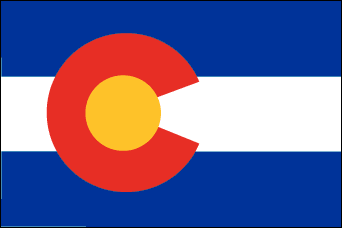DENVER — First it was cigarettes. Now a group of Colorado legislators want to put a warning on fuel pumps.
House Bill 25-1277, recently introduced into the Colorado Legislature, would require every retailer selling liquid or gas fuel to post global warning stickers on their pumps and products. Failure to do so would result in a $20,000 fine.
The declaration attached to the bill states, "Providing information about the impact of fossil fuel consumption directly at the point of purchase may encourage consumers to reduce their consumption and use alternative products."

The warning not only would be required on pumps but on any fuel product display in the store. Opponents say the language appears to include propane and butane used in camping stoves and heaters.
"Evidently the purpose of the bill is to shame buyers for purchasing a product necessary for them to use in many cases to transport their children to school, travel to work, or go to the grocery store," said Greg Fulton, president of the Colorado Motor Carrier Association.
He pointed out that many families cannot afford an electric vehicle, which the bill seems to be aimed at forcing residents to buy.
DENVER — Denver and its suburb Lakewood have instituted a crackdown on the number of new gasoline stations that can be built in their cities.
Denver's City Council passed an ordinance banning new gas stations within a quarter mile of an existing one, a rail transit station, or within 300 feet of low-density residential zones.
The Council wants to put a stop to situations that already exist in a one-mile-stretch of the city where there are nine gas stations.
Two law firms have already informed the Council they would sue on the grounds that the ordinance violates both the Colorado and the U. S. Constitutions because it would apply retroactively. The ordinance applies to any new gas station proposals not submitted for review before May 2024.
Exempt from the law would be new gas stations attached to large grocery stores.
The Council said its motivation was to protect the city from the over-proliferation of gas stations taking up space where developers could build much-needed low income housing.
NAIOP, a commercial real estate association, called the restrictions "another straw on the camel's back" and predicted it would stifle development elsewhere in the city. Why, the association questioned, would developers want to buy land or investors put money into projects where the law could change as quickly as it just did, affecting property already purchased or under contract?
One widow said the new restrictions have already ruined her retirement as she was planning to sell her land to a gas station chain.
A month earlier Lakewood, a Denver suburb with 50 gas stations, passed its own set of restrictions on the development of new gas stations.
It requires a half-mile separation between a new station and those already in operation. It also reduces the areas in the city where a station could open through the exemption of zoning restrictions.
"The goal really is just to make sure that we're not inundated with these types of businesses," said Councilman Jacob LaBure. "They can be dangerous and they are contributing to our lack of ability to meet federal standards in air quality."
When new gas stations are permitted they would have to offer at least three electric charging stations, one with the most rapid charging technology.
QuikTrip, a relatively new entry into the Colorado market, said the ban is wrong because gas stations "are an incredibly important critical component of the public transportation needs." The firm believes the ordinance is the first step toward an outright ban on any new gas stations.
Two years ago another Denver suburb, Louisville, placed a cap of six on the number of gas stations that could be built.
DENVER — Another fight is brewing in this city, over the Council's passage of a ban on flavored tobacco.
The Council voted 11-1 in December to institute the ban. Soft enforcement begins July 1 and hard enforcement on Jan. 1, 2026.
The opponents are hoping to overturn the ordinance through a referendum. They had obtained more than 2,000 signatures on petitions by presstime. They needed 9,494 to get it on the ballot.
The Colorado/Wyoming Petroleum Marketers and Convenience Store Association is battling the ban along with Reynolds American, Altria, Philip Morris International, ITG, as well as law enforcement and community groups.
Grier Bailey, executive director of CWPM&CSA, said it is "wrong to restrict adult access to legal products." His association represents more than 2,000 retailers, of which 250 do business in Denver.
Yolanda Richardson, president of Tobacco Free Kids, applauded the Council for "standing up to 'Big Tobacco'" and taking action to "end the industry's predatory targeting of kids and black and Latino communities with flavored products."
Bailey says convenience stores and other retailers already do a good job of self-policing to protect children.
BOULDER — A victim made out like a bandit when her car was stolen.
The thief took the vehicle to a gas station where the car was spotted two hours after a woman reported it stolen from her residence.
Police let him fill the tank, then pull into a car wash. At that point they moved in and apprehended him.
The officers decided to take money out of their own pockets to finish the wash job.
So the victim was presented with a freshly washed car and a tankful of fuel.
Originally published in the April 2025 issue of the O&A
Marketing News.
© KAL Publications Inc. 2025
